Daily Current Affairs 22 August 2021 – Gkseries

Current Affairs is the most important area in all competitive exams. But the difficulty level is very high. That’s why; many aspirants get confused, how to select Current Affairs for Preparation of Competitive Examination? In this Post, Daily Current Affairs 22 August 2021, we have tried to cover each and every point and also included all important facts from National/ International news that are useful for upcoming competitive examinations such as UPSC, SSC, Railway, State Govt. etc.
Daily Current Affairs 22 August 2021
GSI added more features to its mobile app
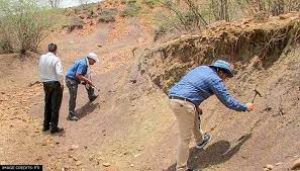
Geological Institution under the Ministry of Mines, the Geological Survey of India (GSI), has decided to make itself accessible to the public and make its presence known digitally by introducing the GSI Mobile App (Beta Version) in 2020 and have upgraded it on a regular basis.
The app is divided into parts that discuss GSI’s legacy, the organization’s in-house publications, numerous case studies on various GSI missions, the photo gallery, and so on.
The E-news section informs the public about the most recent developments in the organisation, including jobs and career possibilities, as well as training options offered by GSI.
It also has a variety of GSI maps, videos, and downloads. The e-book portion would provide the general public an overview of GSI’s exploratory activities.
PM Modi Inaugurated and laid the foundation of multiple projects in Gujarat
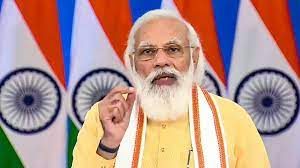
Prime Minister Narendra Modi inaugurated and laid the foundation stone of multiple projects in Gujarat’s Somnath.
The development works of Juna Somnath Mandir Premises include a ramp for universal access, CourtyYard, sitting arrangements for the pilgrims, 15 shops, lift and two large halls with an expenditure of Rs. 3.5 crore by Shree Somnath Trust.
The proposed Parvatimata Mandir in Shree SomnathTemple premises would be a grand structure with an area of 1650 Met2 and 71 Ft. height using Aras Stones from Ambaji, Banaskantha.
There would be 44 poles, as were there in the original temple, which would be created using Marble with an artistic way. The core Garbh Grih of the Madir contais the land of 380 Met2, and Dance Mandap spreading over 1250 Met2.
Development of Somnath has been proposed as one of the iconic tourism destinations by the Ministry of Tourism under its Integrated Destination Development Scheme (IDDS) for development of components such as Prabhas Patan Museum, Tourist Amenities, Haat etc.
A few regional interventions such as Keshod Airport, improvement of NH-51, development of Sea Plane services etc. for providing improved connectivity to Somnath, ensuring a comprehensive and broad development of the entire region are also proposed under this under consideration project.
China is looking at a three-child policy
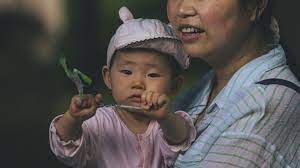
China relaxed its previous two-child norm and endorsed a three-child policy mooted by the ruling Communist Party in a major policy shift aimed at increasing the country’s declining birth rate.
The resolution was passed along with several others during a meeting of the National People’s Congress (NPC).
Earlier this year, after China’s census data showed population growth slipping to its slowest rate since the 1950s, the country announced that it would allow three children per married couple — five years after it first relaxed its controversial one-child policy to two.
China’s one-child policy, which had been enforced by former leader Deng Xiaoping in 1980, had remained in place until 2016, when fears of a rapidly ageing population undermining economic growth forced the ruling Communist Party to allow two children per married couple.
While the relaxation did result in some improvement in the proportion of young people in the country, the policy change was deemed insufficient in averting an impending demographic crisis.
Even as a three-child policy has now been announced, many remain skeptical, wondering how it would be able to address challenges that the 2016 change could not, due to factors such as higher cost of living and long working hours.
The United Nations expects China’s population to begin declining after 2030, but some experts say this could happen as early as in the next one or two years. By 2025, the country is set to lose its ‘most populous’ tag to India, which in 2020 had an estimated 138 crore people, 1.5 per cent behind China.
HAL is building a civilian aircraft for use in India
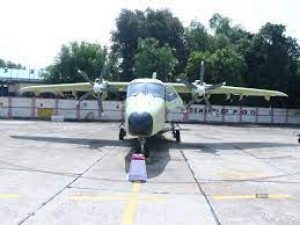
The Hindustan Propulsion Trainer 32 (HPT-32) – for the Indian Air Force six decades ago, and more recently the Light Combat Aircraft (LCA) for the IAF, the Indian aviation sector has not produced any civil transport aircraft.
The 19-seater Hindustan-228 or the Do-228 is the first major attempt in India to develop a small civil transport aircraft after the 14-seater Saras aircraft development program at the National Aeronautics Laboratory was shelved in 2009 on account of multiple problems in its development.
The Hindustan-228 aircraft is built on the existing frame of the German Dornier 228 defence transport aircraft used by the defence forces.
Despite producing aircrafts like the Hindustan Trainer-2 and its variant – the Hindustan Propulsion Trainer 32 (HPT-32) – for the Indian Air Force six decades ago, and more recently the Light Combat Aircraft (LCA) for the IAF, the Indian aviation sector has not produced any civil transport aircraft.
Small civilian aircrafts are considered to be an essential element of the UDAN (Ude Desh ka Aam Naagrik) scheme that the central government is attempting to put in place for regional connectivity.
Shariah law and it’s meaning for Afghan women
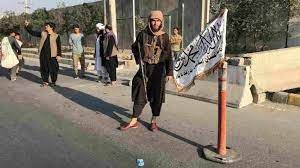
The Taliban have pledged that women in Afghanistan will have rights “within the bounds of Islamic law,” or Shariah, under their newly established rule. But it is not clear what that will mean.
Shariah is based on the Quran, stories of the Prophet Muhammad’s life and the rulings of religious scholars, forming the moral and legal framework of Islam. The Quran details a path to a moral life, but not a specific set of laws.
One interpretation of Shariah could afford women extensive rights, while another could leave women with few. Critics have said that some of the Taliban restrictions on women under the guise of Islamic law actually went beyond the bounds of Shariah.
The interpretations of Shariah are a matter of debate across the Muslim world, and all groups and governments that base their legal systems on Shariah have done so differently.
China passed major data protection law as regulatory scrutiny on tech sector intensifies

China passed a major data protection law setting out tougher rules on how companies collect and handle their users’ information.
The Personal Information Protection Law (PIPL) lays out for the first time a comprehensive set of rules around data collection, processing and protection, that were previously governed by piecemeal legislation.
Under the new rules passed by China’s top legislative body, state and private entities handling personal information will be required to reduce data collection and obtain user consent.
It will also prevent companies from setting different prices for the same service based on clients’ shopping history.
The national privacy law closely resembles the world’s most robust framework for online privacy protections, Europe’s General Data Protection Regulation, and contains provisions that require any organization or individual handling Chinese citizens’ personal data to minimize data collection and to obtain prior consent.
However, unlike in Europe, where governments face more public pressure over data collection, Beijing is expected to maintain broad access to data.
Moplah rebellion a manifestation of Talibani mindset
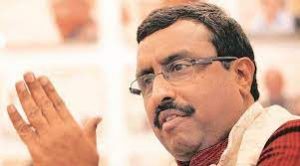
The Moplah rebellion, also known as the mappila riots, of 1921 was one of the first manifestations of the Taliban mindset in India and the Left government in Kerala was allegedly trying to whitewash it by celebrating it as a communist revolution, former National General Secretary of BJP Ram Madhav claimed.
August 20 marks the centenary of the Malabar rebellion, which is also known as the Moplah (Muslim) riots. It had been an uprising of Muslim tenants against British rulers and local Hindu landlords.
The uprising, which began on August 20, 1921, went on for several months marked by many bouts of bloodstained events. Some historical accounts state the uprising led to the loss of around 10,000 lives, including 2,339 rebels.
It has often been perceived as one of the first nationalist uprisings in southern India. It has even been described as a peasant revolt. In fact, in 1971, the then Kerala government had included the participants of the rebellion in the category of freedom fighters.
The incidents of the uprising took place in regions which are currently under the Malappuram district in north Kerala.
The State Mental Health Authority of Karnataka
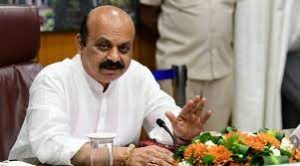
The Karnataka government has begun preparations to constitute a State Mental Health Authority. Approved by the Basavaraj Bommai-led cabinet on August 19, the authority is expected to oversee timely and efficient delivery of mental healthcare services to citizens in the state.
The Karnataka Mental Health Authority will be in charge of collating and publishing a list of clinical psychologists, mental health nurses and psychiatric social workers registered to work as mental health professionals.
This registry will be utilised to ensure services are offered in a timely and efficient manner to the needy across the state.
Mental health issues were reported widely among citizens in the state, especially during the crisis linked to the Covid-19 pandemic.
This pushed experts, including those from the National Institute Of Mental Health and Neurosciences (NIMHANS) in Bengaluru, to pressure the government to constitute an exclusive body to keep mental healthcare services provided in the state on check.
Greenland summit received rain instead of snow for first time ever on record

Precipitation fell at the highest point on the Greenland ice sheet as rain and notice for the first time on record. The rain fell for several hours at the ice sheet’s 3,216-metre summit on August 14, where temperatures were recorded above the freezing point for around nine hours.
Greenland, which is the world’s largest island located between the Arctic and Atlantic oceans, has three-quarters of its surface covered with a permanent ice sheet– which is increasingly coming under threat because of climate change.
The rain, coupled with warm conditions, caused a major melting event at the summit, adding to concerns of rapid ice melting running off into the ocean in volumes, thus accelerating global sea level rise.
Greenland, which is two-thirds the size of India, already witnessed one of its most severe melting events of the past decade last month, when it lost 8.5 billion tons of surface mass in one day– the third such extreme event in the past decade.
The UN’s “code red” climate report released last week concluded that the burning of fossil fuels led to Greenland melting in the last 20 years.
The rapid melting is also threatening polar bears, which now have to make their way hundreds of kilometres towards Greenland’s interior from the coasts, where they usually find enough food.
Elopements most prosecuted under child marriage law
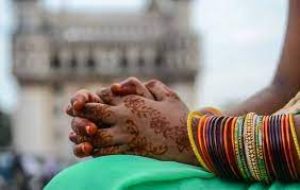
Legal proceedings against child marriages are commonly undertaken against elopements whereas forced child marriages often go unpunished, finds a new study.
The report — “Child Marriage Prosecutions in India” — brought out by Partners for Law in Development (PLD), a Delhi-based legal resource group, analysed 83 high court and district court verdicts in cases relating to child marriage from 2008 and 2017.
It selected for analysis judgments and orders in which child marriage was specifically mentioned.
These included cases filed under the Prohibition of Child Marriages Act, 2006, as well as legal action initiated under other laws in relation to child marriage such as Protection of Children from Sexual Offences Act (POCSO), 2012, and the Indian Penal Code (IPC).
The study found that legal prosecution of child marriages was twice as much against elopement or self-arranged marriages by girls with such cases accounting for 65% ( 54 out of a total 83 cases) of the total cases studied.
Only 30% of the cases were those of arranged child marriages, and a mere 5% were forced child marriages (such as those that involved kidnapping, enticement or forcible marriage by parents).
An analysis of who initiated the legal proceedings shows that it was primarily the parents of girls who approached the legal system with a complaint. Only 7% of the cases were initiated by a child marriage prohibition officer — the State functionary designated for implementing the law.